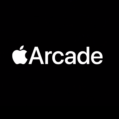Apple and Valve Rumoured to be Partnering on AR Headset
by on 5th Nov 2019 in News


Apple is rumoured to be working with game outfit Valve on an augmented reality headset that may be due for release next year.
Citing industry sources, DigiTimes points to late 2020 as the earliest reasonable debut for unnamed headset, and identifies Taiwan's original design manufacturing specialists Quanta Computer and Pegatron as handling the manufacturing.
While the news firmly falls under 'rumour', there are a number of reasons the suggestion is both compelling and fascinating.
Valve is the respected and often beloved video game developer that went on to reshape PC gaming and even game sales and marketing more broadly on launching the Steam digital storefront and distribution platform in 2003. Valve later joined the VR headset space, co-developing the HTC Vive with Taiwanese consumer electronics giant HTC, unveiling the device in early 2015. Valve went on to develop its own VR headset, the Valve Index, releasing the technology to the public earlier this year.
After the great hype of the Oculus Rift Kickstarter campaign in 2012, VR quickly became an eagerly anticipated technology, enjoying much attention from investors, developers, press and consumers. But while VR hardware sales continue, VR has not yet become a mainstay of day-to-day life, as many had hoped. AR, meanwhile, has boomed on ordinary smartphones - including Apple's iPhone - in no small part thanks to the cultural phenomenon that is Pokémon GO.
VR also provides both content developers and users with a challenge; it essentially isolates key senses, closing off vision and hearing; an experience not everyone takes too, and something that limits use cases. AR, meanwhile, is significantly defined by overlaying a view of reality with digital assets. While it is a slight over simplification, one understanding of the 'XR' spectrum can be considered to have AR at one end and VR at the other. Keep adding assets to the AR field of view, and eventually you will entirely obscure reality, and offer a version of VR. As such, many approaches that sit across the extremes of that platform are framed as 'mixed reality' - or 'MR' - experiences.
In letting the user still see and interact with reality, AR offers huge potential. Imagine a version of Google Maps that overlays information onto real streets. Or an interactive service manual for an engineer to use while repairing an elevator, which annotates their view of reality. Or a game where over a billion people roam the streets hunting cute little monsters. And, of course, in-game and 'in-reality' advertising could be significantly disrupted if AR emerges as an everyday technology.
Clearly, AR has tremendous commercial potential, even if it hasn't been quite as hyped or anticipated as VR in previous years. And Apple and Valve are no strangers to pursuing and pushing commercially sensational products and content.
Furthermore, a little over a month ago Apple analyst Ming-Chi Kuo predicted that the company would launch an AR headset for the iPhone in the second quarter of 2020. A month previous to that, a Tweet by developer Steve Troughton-Smith suggested that code in iOS 13 revealed coming AR support.
https://twitter.com/stroughtonsmith/status/1171571825475825666
The belief is that Apple will release some kind of 'AR glasses' for the iPhone; likely linking much like a smartwatch or similar accessory.
Still, this is very much a rumour. MacRumours highlights a view that DigiTimes has not always correctly interpreted information from sources. As such, Apple and Valve's 'AR glasses' are best chalked up as a very enticing 'maybe'.
AdvertisingAppleARDeveloperGamingMobilePlayersPublisherRetailstoresTechnologyUncategorizedVR







Follow TheGamingEconomy